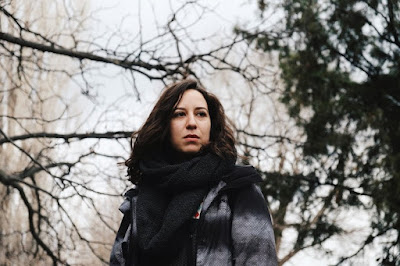With the onset of winter, it's time to protect your #hair from damage that the natural harsh elements cause and the ideal way to do it is to include essential fatty acids and zinc in your diet, says an expert.
Sangeeta Velaskar, Vice President and Head, Medical Services and R&D, Kaya Limited has rolled out a few pointers:
* For dry hair: Use a mild shampoo with conditioner twice a week and deep condition your hair once a week. During the winter months, it's a great idea to treat your hair to a deep conditioning treatment at least once a week.
This will help in replenishing the moisture, which tends to get depleted due to styling with hot hair tools or the cold winter air. An alternative is to oil the hair once a week and leave overnight for the moisture to get absorbed in the roots. This leaves your hair feeling soft and shiny.
Include essential fatty acids in your diet like fish, flax seeds and almonds, to improve the texture of your hair and combat dryness
* Brittle hair: Brittle hair is prone to breakage and requires a conditioner developed to repair protein structure and infuse moisture. Sun damage, hair colouring, chemical treatments like straightening, relaxing and perms and heat damage from styling remove the moisture and break vital elastic protein cellular connectivity.
When your hair is exposed to hot air from the dryer, the process makes the hair even more dry and easy to break.
Let your hair dry naturally, avoid using a dryer unless you are in a hurry. Even then use the dryer on a cold setting to help hold moisture in the hair
Include zinc in your meals with food items like meat, eggs, whole grains and nuts. Ensure what you eat has enough Vitamin B6, B12 and C
* Oily hair: Sebum glands on the scalp create a natural hair conditioner that lubricates the scalp. While a little extra oil keeps the scalp in good condition and prevents dry, flyaway tresses, it can also cause oily hair.
Various other factors such as heredity, hormonal fluctuations and shampoo residue can cause excessive oil production in the scalp which in turn makes the hair greasy.
If you have oily hair, shampoo it with cool water and massage less. Hot water and massages simulate the sebaceous oil glands on the scalp encouraging them to produce more oil.
One of the most important vitamins for body and hair is Vitamin B. Eating food rich in Vitamin B will help combat the oil production in your body and scalp. The sebum production is regulated by having food rich in Vitamin B which is found primarily in foods such as poultry, fish, meat, beans, fruits and vegetables.
* Frizzy Hair: Living with frizz can be extremely frustrating, especially when you have curly hair. One puts in so much effort to make the hair look tamed and perfect but all it takes is 2 minutes and a little wind to make your hair get frizzy. Many of us brush it off, blaming it on the natural texture, but that's not the case.
Frizz is a result of an absence of a hair care regimen, and that's why a little extra attention is all it takes to tackle the problem head on.
Using an avocado and yogurt based hair mask is an inexpensive but effective remedy to control frizz. It contains vitamins B and E which nourish the hair and repair damage while the yogurt cleans and deep conditions your hair.
Visit our yet another website on Food recipe and health tips (largest collection of Indian and International recipe) - Imperial Inn!












No comments:
Post a Comment